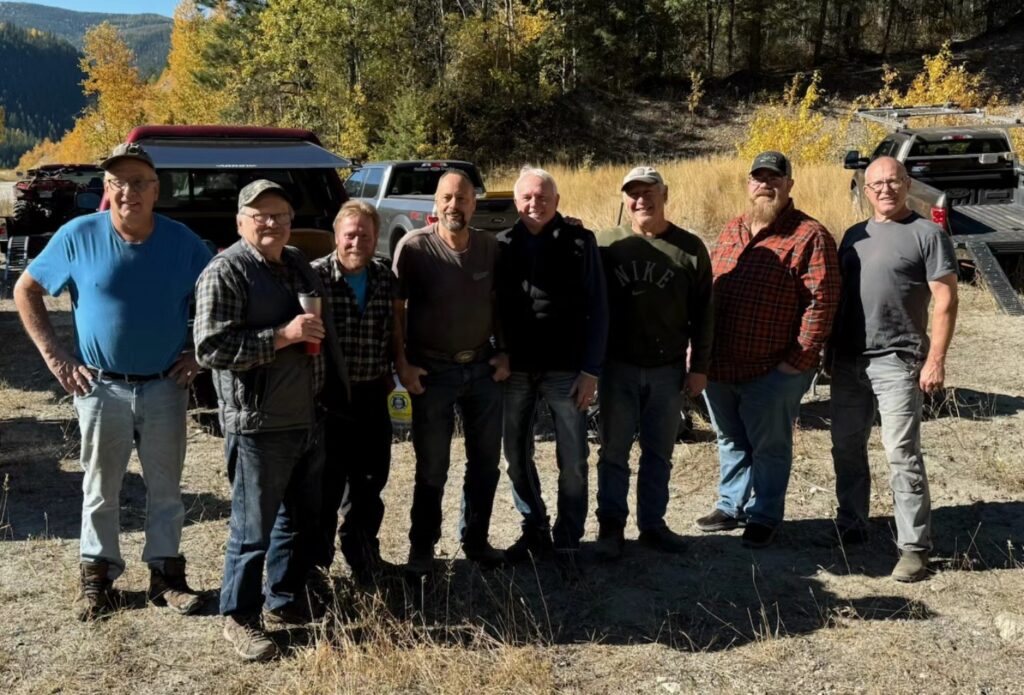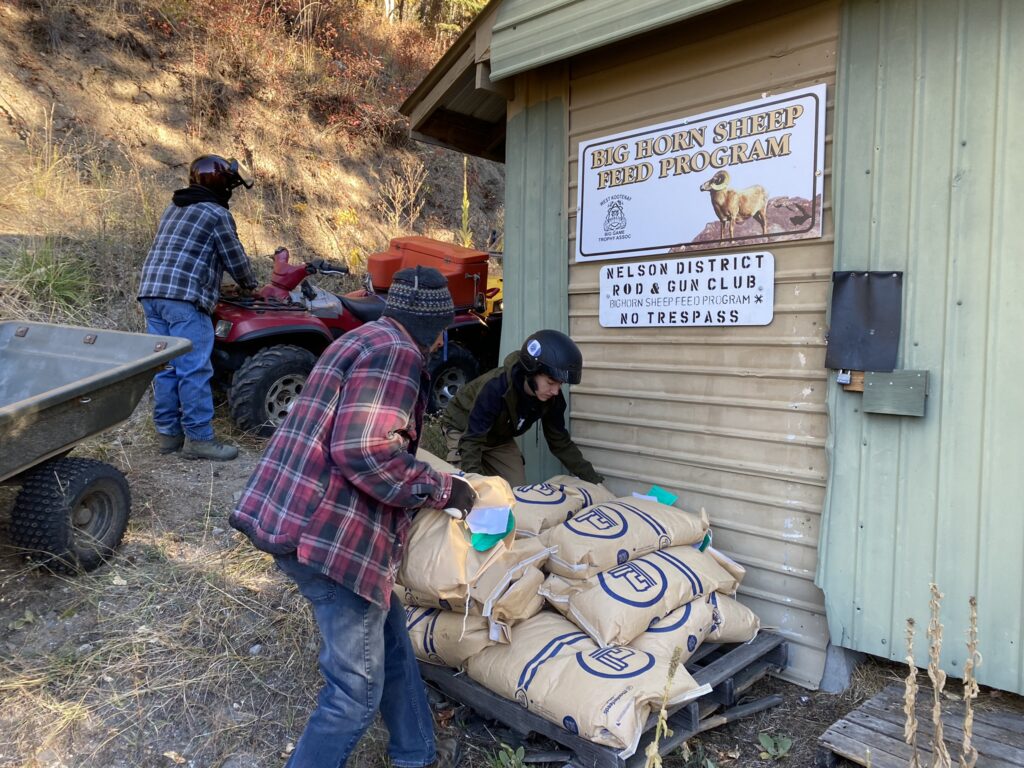UNCLASSIFIED / NON CLASSIFIÉ
image001.png
Pacific Partners Boating Bulletin
February 2025
Comments in Canada Gazette, Part I – Vessel Operation Restriction Regulations
We are pleased to inform you that the comments received during the consultation on modernizing the Vessel Operation Restriction Regulations (VORR), held from September 14 to November 28, 2024, have been published.
The comments can be accessed in the Canada Gazette, Part I. These comments provide valuable perspectives from participants and will help guide the next steps in the modernization process.
We thank all participants for their time and input during the consultation.
To stay informed about future updates on VORR modernization or other initiatives related to marine safety and security, please contact the Canadian Marine Advisory Council (CMAC) Secretariat at cmac-ccmc@tc.gc.ca and request to be added to their distribution list.
Thank you for your continued engagement.
Careless Operation and Boating Sober
Avoid Dangerous Behaviors
Never try to spray swimmers, or cut in front of or try to jump the wake of other vessels. Some of the worst boating incidents happen when operators misjudge speed or distance.
Operate at a Safe Speed
Remember that you may have to stop or turn suddenly to avoid a collision, so operate at a safe speed. A safe speed depends on:
image005.png• your ability to see ahead – slow is the only safe speed in fog, mist, rain and darkness;
• current, wind, and water conditions;
• how quickly your boat can change direction;
• how many and what types of vessels are near you; and
• the presence of navigational hazards such as rocks and tree stumps.
Be very careful when boating where visibility is poor, such as entering or exiting a fog bank.
A boat’s wake can damage other vessels, docks and the shoreline. It can also be a risk for swimmers, divers and people on small boats that might capsize. Be aware of how your boat’s wake might affect others when choosing your speed. You will be responsible for any damages or harm you cause.
Impaired driving on the water
Boating under the influence of alcohol, or drugs is illegal. It is also a danger to yourself and others. Staying sober is your responsibility. Boating while drinking or taking drugs can lead to dangerous situations. When boating impaired , you are not just a danger to yourself but to others too. Each time you operate a boat, you are responsible for the safety of your guests and other people using the waterway. You must always be prepared and alert. Mixing alcohol and drugs with boating is far more dangerous than you may realize. Fatigue, sun, wind and the motion of the boat may dull your senses. Alcohol and drugs intensify these effects, leaving you with reduced fine motor skills (for example, hand-eye coordination) and impaired judgement.
Consequences
Impaired driving, whether on land or water, is punishable under the Criminal Code of Canada.
image007.jpegConvictions for a first offence can result in:
• fines
• prohibition from operating a boat or motor vehicle
• seizure of the boat for a period of time
• possible prison terms
The laws and penalties for when a boater is considered impaired follow provincial and territorial driving laws.
Disposal of expired flares
Anyone wishing to dispose of expired marine flares contact the distributor for instructions on how to do it in a safe, environmentally appropriate way. Here is the list of current flare distributers and other entities that accept flares for disposal in Canada:
Distributers
Location
Flare types accepted
Contact Information
CIL
Lachute, QC
Orion
Other brands for an addition disposal fee
450-566-0655
DSS Marine
Dartmouth, NS
Comet
Pains Wessex
902-835-4848
info@dssprotection.com
Spartan Industrial Marine
9 locations in Atlantic Canada and Quebec
Nammo
Hansson Pyrotech
Other brands for an addition fee if it is not visibly damaged or in poor condition that could pose a health and safety hazard
902-468-2111
info@spartanmarine.ca
Collection Services
Location
Flare types accepted
Contact Information
Fireworks Factory Inc.
Rockyford, AB
(Western Canada)
Any marine flares subject to a disposal fee
1- 403-533-3899 (office)
1- 844- 404- 6767 (toll free)
admin@fireworksfactory.ca
Canadian Ammunition Disposal Services (CADS)
Nationwide
Able to dispose small quantities of marine flare subject to a disposal fee
905-977-9899
https://cadsammunitiondisposal.comtom@CADSAmmunitionDisposal.com
Safe Boating Guide
image008.png
image009.pngimage010.png
image011.png
image012.png
Hello,
The Office of Boating Safety is reaching out to partners around British Columbia spreading boating safety messages.
The Office of Boating Safety does the following:
Pleasure Craft Licencing
Pleasure Craft Operator Competency
Rental Boat Best Practises
Boating/ Waterway Restrictions
Safety Equipment
Boating Safety Outreach and Education
Training Enforcement Partners
The Enforcement partners who have the power to enforce the CSA, 2001 are BC Parks, RCMP, Municipal Police, Conservation Officers, DFO
Liaising with Regional Districts, Municipalities and other Local Authorities
Safety audits of Waterways and Businesses
Please reach out to the Office of Boating Safety with any questions or concerns that you have with regard to boating safety. We look forward to working with you to make British Columbia a safer place to boat.
Regards,
Kyle Wiens (He/Him/Il)
Boating Safety Officer, Office of Boating Safety, Marine Safety and Security
Transport Canada, Pacific Region / image013.jpg Government of Canada
kyle.wiens@tc.gc.ca / Phone: 1-236-339-7085 TTY: 1-888-675-6863
Agent de la sécurité nautique, Bureau de la sécurité nautique, Sécurité et sûreté maritimes
Transports Canada, Région du pacifique / image013.jpg Gouvernement du Canada
kyle.wiens@tc.gc.ca/ Phone: 1-236-339-7085 ATS: 1-888-675-6863
image014.jpg image016.png image018.png
image019.png
Government of Canada | Gouvernement du Canada
image020.png
This e-mail may be privileged and/or confidential, and the sender does not waive any related rights and obligations. Any distribution, use or copying of this e-mail or the information it contains by other than an intended recipient is unauthorized. If you received this e-mail in error, please advise me (by return e-mail or otherwise) immediately.
Ce courrier électronique est confidentiel et protégé. L’expéditeur ne renonce pas aux droits et obligations qui s’y rapportent. Toute diffusion, utilisation ou copie de ce message ou des renseignements qu’il contient par une personne autre que le (les) destinataire(s) désigné(s) est interdite. Si vous recevez ce courrier électronique par erreur, veuillez m’en aviser immédiatement, par retour de courrier électronique ou par un autre moyen.
Wear Your Lifejacket. It may save your life!
I am honoured to live, play and work on the waters and land in the unceded territory of the lək̓ʷəŋiʔnəŋ (Lekwungen) People, also known as the Songhees and Esquimalt First Nations communities.



